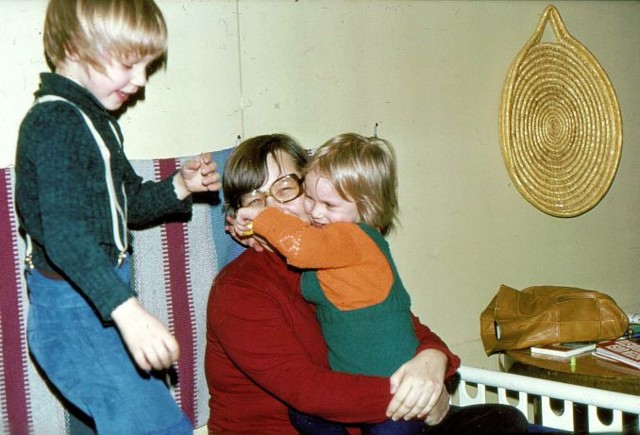Sananvapaus, oikeus kiusata?
Koulukiusaajalle sananvapaus.
Työpaikkakiusaajalle sananvapaus.
Oikeus kiusata mielipiteen takia.
Oikeus kiusata uskon takia.
Kaikille oikeus kiusata.
Oikeus tulkita ihmisoikeuksien julistusta.
Sananvapauden takia.
Ihmisoikeuksien julistuksesta:
"Everyone has the right to freedom of opinion and expression; this right includes freedom to hold opinions without interference and to seek, receive and impart information and ideas through any media and regardless of frontiers."
"In the exercise of his rights and freedoms, everyone shall be subject only to such limitations as are determined by law solely for the purpose of securing due recognition and respect for the rights and freedoms of others and of meeting the just requirements of morality, public order and the general welfare in a democratic society".
Islamin ihmisoikeuksien julistuksesta:
" No one shall hold in contempt or ridicule the religious beliefs of others or incite public hostility against them; respect for the religious feelings of others is obligatory on all Muslims."
Thaimaalaisen Bangkok Post-lehden pääkirjoitus 7.2.2006:
"A newspaper in Denmark has touched off a worldwide firestorm of anger by publishing cartoons caricaturing the Prophet Mohammed as a bomber and terrorist. The cartoons give graphic offence by breaking two of the greatest taboos in Islam _ depicting an image of the leading prophet, and showing massive disrespect. Critics including non-Muslims noted the cartoons effectively blame Islam for terror attacks. More importantly, they crudely depicted one of history's most respected religious figures. The cartoons were distasteful, but also not factual. Instead of "supporting" the admitted error of the Danish journal by reprinting this material, newspapers would better serve their readers by explaining the problem and helping to bridge the gulf.
Freedom of the press is undoubtedly among the most important measures of a democracy. Few western journals know the dangers and consequences of fighting censorship as well as this newspaper. Not long ago, this newspaper appeared with a front page almost entirely blank because of censorship. Repressive government forced it to stop publishing in 1976. But freedom of the press is not licence to make trouble. Neither Islam nor any Muslim threatened to censor the Danish newspaper or media establishment. By apologising "to the Muslim world", Jyllandsposten tacitly admitted exactly that point when it said that "it was not our intention to be offensive". Lay aside the question of what, then, was its intention. This sorry incident has a bright side. The main, positive point is that no Muslim religious or political leader has called for violence. That is a lot of progress in just 15 years. In 1989, the Iran government and its religious ideologue Ayatollah Ruhollah Khomeini called for the murder of author Salman Rushdie for his book The Satanic Verses. Many so-called leaders supported this questionable fatwa (Islamic order) and Mr Rushdie hid in police protected banishment for years. Eventually, after Khomeini died, more responsible Iranian leaders reversed the order.
Most Muslims and all authorities worldwide are opposing the Danish newspaper more responsibly _ with consumer boycotts, diplomatic protests and strong criticism. There have also been articles, interviews and teach-ins for European Christians and others confused by the enormous, passionate criticism of the cartoons. Mobs in Syria and Lebanon burnt the embassies of Denmark and Norway and, hatefully and indefensibly, attacked a church in Beirut, where 30 people were injured in clashes with police. Such violence is reprehensible, and nations where violence is threatened must move to prevent it. Apart from Damascus and Beirut, the Muslim reaction to the cartoons has been most similar to recent Thai outrage against a film director seated on the head of a Buddha image, and against a US restaurant which showed gross disrespect for His Majesty the King. The protests, although angry, were principled and contained no threat of violence. The filmmaker's "apology to Thailand" is arrogantly displayed on web pages which include the offensive poster, thus making the apology without merit.
Newspapers routinely refuse to publish news and, especially, photos. This newspaper generally refuses to use photos of bodies, or victims of sex-related crimes. This is also freedom of the press. Some western newspapers have reprinted the anti-Muslim cartoons, claiming to be acting for higher principle. But even "supportive" newspapers have been as tricky as a trial lawyer. Le Monde of Paris reprinted a cartoon on its front page _ but then declined to send the edition to Morocco, Saudi Arabia and the Middle East as it does every other day.
Freedoms do not occur in a vacuum, obligate responsibility, and thus cannot be absolute. In isolated law and theory, Jyllandsposten was free to print pornographic pictures, or a story that Danish astronauts had landed on Jupiter. Responsibility prevented them from doing so. Yet given the choice between insightful comment and offending 1.2 billion Danish and foreign Muslims, risking the country's economy and putting thousands of citizens at physical risk, the newspaper took the wrong choice. It can only be hoped that Muslims will follow the advice of their leaders, and use freedom of speech and of consumer choice in peaceful protest."
Tapasin eilen erään parhaimmista ystävistämme, joka on vuosikymmeniä työskennellyt kansainvälisessä järjestössä useissa maissa yhdessä erimaalaisten, eri uskontoa tunnustavien tai uskonnottomien ihmisten kanssa. Ymmärsin taas kerran, miksi olemme ystäviä. Tietyissä perusasioissa olemme samaa mieltä. Vahva Ei kaikelle kiusaamiselle.
Ihmisoikeuksien yleismaailmallinen julistus, 10.12.1948
Laiskanläksyä meille kaikille.
1977. Lokalahti. Kummitädin kiusaamista ei lasketa :)





Kommentit